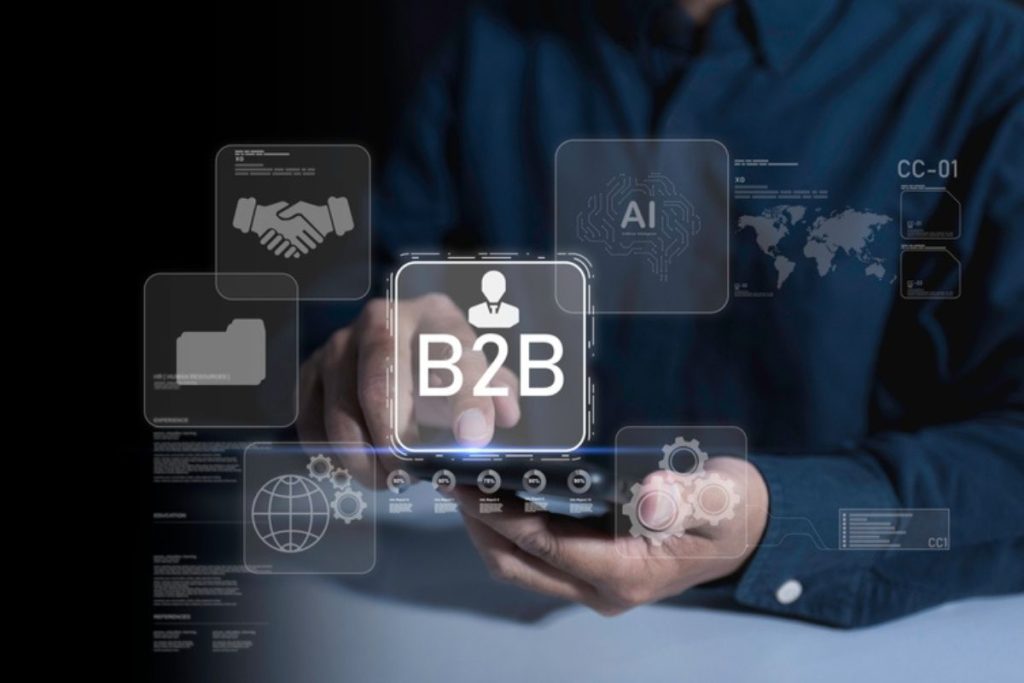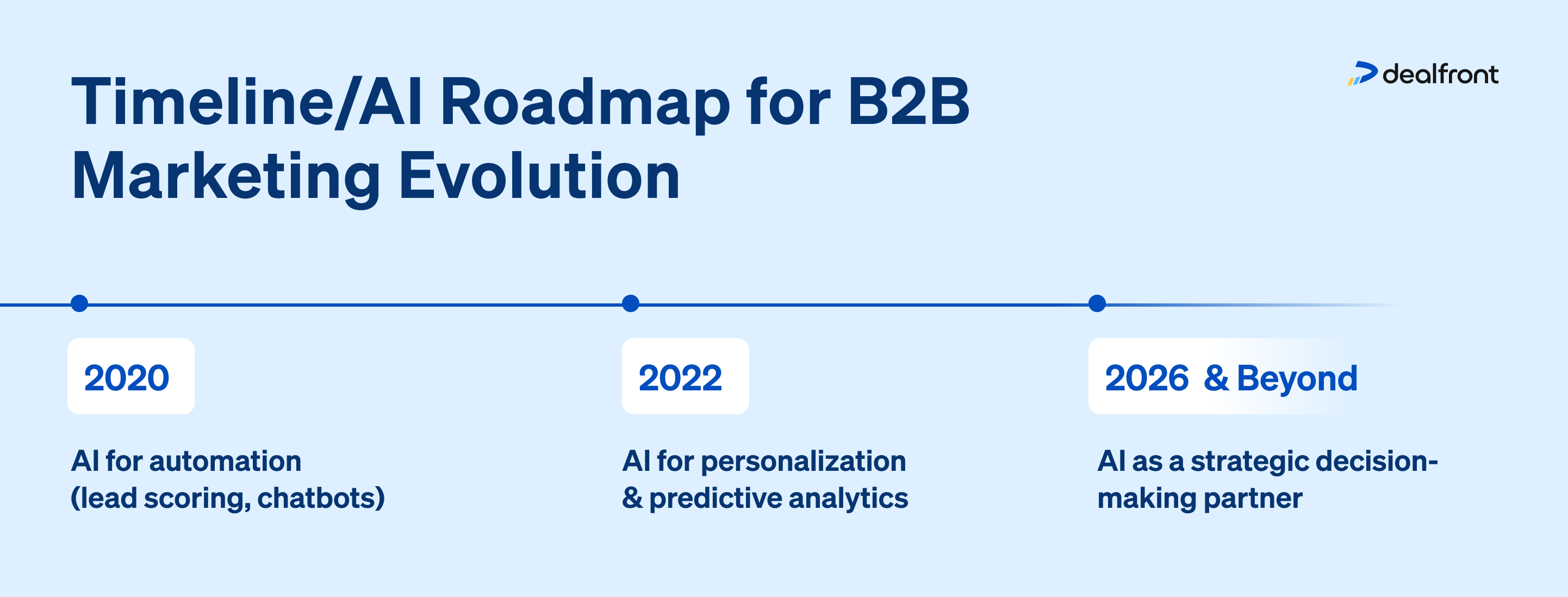Change Your Business: How AI Automation Is Transforming B2B Procedures
AI automation is improving B2B operations in significant means. Firms are embracing this modern technology to streamline workflows and boost effectiveness. As jobs end up being automated, companies can concentrate on critical growth as opposed to ordinary processes. The effects of these modifications are extensive, influencing every little thing from client interactions to provide chain management. Understanding this transformation is essential, as the future of organization rest on the effective combination of AI right into daily procedures. What exists in advance in this advancing landscape?
Understanding AI Automation in B2B Context
As businesses increasingly look for performance, recognizing AI automation within the B2B context becomes important. AI automation refers to the application of expert system technologies to enhance and enhance organization processes. In B2B environments, this can materialize in different kinds, such as automating information entry, maximizing supply chain logistics, or enhancing inventory management. Organizations leveraging AI automation can reduce functional prices, reduce human mistake, and rise efficiency. AI devices can examine substantial amounts of data to offer actionable insights, enabling informed decision-making. The combination of AI right into B2B procedures not just changes traditional workflows but additionally cultivates dexterity and scalability, allowing organizations to adjust to market adjustments promptly and effectively. Embracing this technology is necessary for remaining affordable in today's digital landscape.
Enhancing Consumer Experience Via AI
Just how can AI transform customer communications in the B2B field? AI boosts client experience by offering personalized, prompt, and reliable solution. Intelligent chatbots and virtual aides can handle questions 24/7, guaranteeing clients receive immediate feedbacks. Predictive analytics make it possible for businesses to prepare for client demands, customizing offerings accordingly. AI-driven platforms can assess client data, enabling targeted marketing approaches and enhanced involvement. Additionally, view analysis tools assess client feedback, assisting organizations tweak their services. By automating regular tasks, AI liberates personnels to concentrate on high-value interactions, cultivating more powerful connections. The integration of AI not just streamlines interaction but likewise constructs count on and commitment, inevitably elevating the general customer experience in the affordable B2B landscape.
Improving Supply Chain Administration With AI
AI plays an essential role in enhancing supply chain monitoring with anticipating analytics and automated inventory control (Minarik AI). By leveraging anticipating analytics, services can prepare for demand changes and change their procedures accordingly. Automated supply systems further boost performance by making sure supply levels are preserved, lowering waste and boosting overall efficiency

Predictive Analytics Benefits
While lots of organizations encounter obstacles in taking care of intricate supply chains, predictive analytics provides a transformative service by leveraging large amounts of information to anticipate fads and enhance operations. By evaluating historical information along with real-time inputs, anticipating analytics enables business to identify patterns and expect future demands. This insight allows for even more enlightened decision-making, improving effectiveness and minimizing costs. Additionally, services can proactively resolve possible disruptions by forecasting supply chain bottlenecks and adjusting strategies accordingly. The combination of predictive analytics not only boosts stock monitoring yet likewise fosters more powerful connections with providers and consumers through timely feedbacks to market shifts. Inevitably, the fostering of predictive analytics encourages organizations to remain affordable in a progressively vibrant company environment.
Automated Supply Control
As companies increasingly count on predictive analytics to enhance supply chain operations, automated inventory control emerges as an effective ally in this initiative. By leveraging AI-driven innovations, firms can improve precision in inventory tracking, decrease stockouts, and lessen excess supply. Automated systems analyze real-time information, allowing services to forecast demand variations and adjust stock degrees accordingly. This not only improves order satisfaction yet additionally boosts cash money circulation management by decreasing holding costs. Furthermore, AI can determine patterns in buying behavior, allowing more educated decision-making regarding provider relationships and procurement approaches. Ultimately, automated inventory control not just increases functional effectiveness however additionally boosts consumer complete satisfaction by guaranteeing item schedule, solidifying its role as a vital component in contemporary supply chain administration.
Data-Driven Decision Making Powered by AI
In today's competitive landscape, companies progressively depend on data-driven decision-making to boost operational efficiency and tactical planning. Expert system plays an essential function in this change by analyzing vast amounts of information swiftly and properly. AI formulas determine patterns, fads, and anomalies that human analysts could ignore, enabling businesses to make enlightened decisions based upon real-time insights - Minarik AI. This ability enables companies to anticipate market shifts, maximize resource allocation, and customize their offerings to consumer needs. Furthermore, AI-driven analytics help with danger analysis and management, ensuring that organizations can navigate uncertainties effectively. By leveraging these innovative devices, organizations not only boost their decision-making procedures but also obtain an affordable advantage in their particular markets, cultivating development and development
Automating Repeated Jobs to Boost Productivity
Simplifying repetitive tasks through automation considerably improves productivity within B2B operations. By applying AI-driven solutions, companies can remove ordinary tasks such as information access, billing handling, and record generation. This shift enables staff members to concentrate on higher-value tasks, promoting creative thinking and strategic reasoning. Automating these lengthy procedures not just minimizes human error but also accelerates operations efficiency. In addition, businesses can attain consistent results and boosted accuracy, which is crucial in preserving client contentment. The assimilation of automation devices makes it possible for organizations to allocate sources better, making certain that groups can respond quickly to market needs. Eventually, taking on AI for recurring jobs is a tactical move that changes functional abilities and drives overall company growth.
Incorporating AI With Existing Company Procedures
Lots of organizations encounter obstacles when incorporating AI with existing company procedures. These difficulties often originate from a lack of recognizing relating to how AI can match current workflows. Effective integration calls for a comprehensive assessment of existing operations to determine locations where AI can include value. Organizations needs to also guarantee that their groups are geared up with the needed abilities to leverage AI tools effectively - AI Automation For B2B. In enhancement, seamless assimilation rests on the compatibility of AI modern technologies with legacy systems. Firms frequently find it advantageous to embrace a phased technique, piloting AI applications in details divisions prior to a more comprehensive rollout. This technique enables changes based upon initial comments, guaranteeing smoother changes and optimizing the possible benefits of AI automation in improving performance and efficiency
Future Trends in AI Automation for B2B Firms
As B2B firms seek to the future, enhanced information analytics is set to play a critical duty in driving decision-making procedures. Intelligent process automation will likewise become an essential trend, enhancing and improving operations efficiency. These advancements promise to improve just how services operate, inevitably bring about even more nimble and responsive companies.
Enhanced Information Analytics
While organizations significantly rely upon data-driven decisions, the role of AI in enhancing data analytics is ending up being extra necessary in B2B procedures. AI technologies promote the collection and evaluation of huge datasets, enabling firms to uncover useful understandings that drive critical preparation. Predictive analytics powered by AI allows organizations to anticipate market fads and client actions with better accuracy. Additionally, artificial intelligence algorithms enhance data analysis, identifying patterns that human analysts might ignore. This brings about even more informed decision-making and optimized resource appropriation. As B2B companies remain to accept AI-driven analytics, they can anticipate improved functional efficiency, boosted customer experiences, and an affordable side in the market. The future of information analytics in B2B rests on integrating sophisticated AI capabilities.
Intelligent Process Automation
Intelligent Process Automation (IPA) is poised to transform B2B procedures by seamlessly integrating AI innovations with typical organization processes. This Recommended Site cutting-edge strategy incorporates robot process automation (RPA) with sophisticated AI abilities, allowing organizations to boost efficiency and accuracy. Companies can automate repetitive tasks, such as data entry and invoice handling, allowing employees to focus on tactical initiatives. IPA likewise leverages artificial intelligence and all-natural language processing, enhancing decision-making via real-time information analysis. As companies significantly adopt IPA, they can anticipate considerable expense reductions and boosted customer experiences. Future patterns show an expanding reliance on IPA for scalability and flexibility, placing companies to prosper in an ever-evolving market. Accepting IPA will certainly be crucial for keeping competition in the digital age.
Regularly Asked Inquiries
What Industries Advantage A Lot Of From AI Automation in B2B Operations?

Exactly How Can Little Companies Implement AI Automation Properly?
Small companies can carry out AI automation efficiently by recognizing recurring jobs, selecting ideal tools, incorporating services progressively, training team, and constantly assessing performance to maximize processes, making best use of and making sure a smooth changeover efficiency.
What Are the Costs Linked With AI Automation Application?
The costs connected with AI automation implementation typically consist of software application procurement, infrastructure upgrades, educating staff, recurring maintenance, and prospective appointment fees. These expenditures can vary significantly based upon the range and intricacy of the automation services selected.
Exactly how Do I Measure ROI From AI Automation Initiatives?
To determine ROI from AI automation campaigns, one need to evaluate expense financial savings, productivity improvements, and income development versus implementation costs. Tracking essential performance signs gradually gives valuable understandings into effectiveness and general return on financial investment.
What Abilities Are Needed to Manage AI Automation Projects?
Effective administration of AI automation projects needs skills in project administration, information analysis, programming, and understanding AI innovations. In addition, solid interaction, analytic capabilities, and flexibility are crucial for maneuvering the complexities of such efforts.
As businesses progressively seek efficiency, understanding AI automation within the B2B context becomes vital. The integration of AI into B2B operations not only transforms typical workflows however also fosters dexterity and scalability, allowing companies to adapt to market adjustments promptly and successfully. While organizations increasingly count on data-driven choices, the role of AI in enhancing data analytics is becoming extra necessary in B2B procedures - Growth Systems For B2B. Intelligent Refine Automation (IPA) is positioned to reinvent B2B operations by seamlessly incorporating AI innovations with traditional business processes. Effective monitoring of AI automation tasks calls for abilities in project administration, data analysis, shows, and comprehending AI innovations